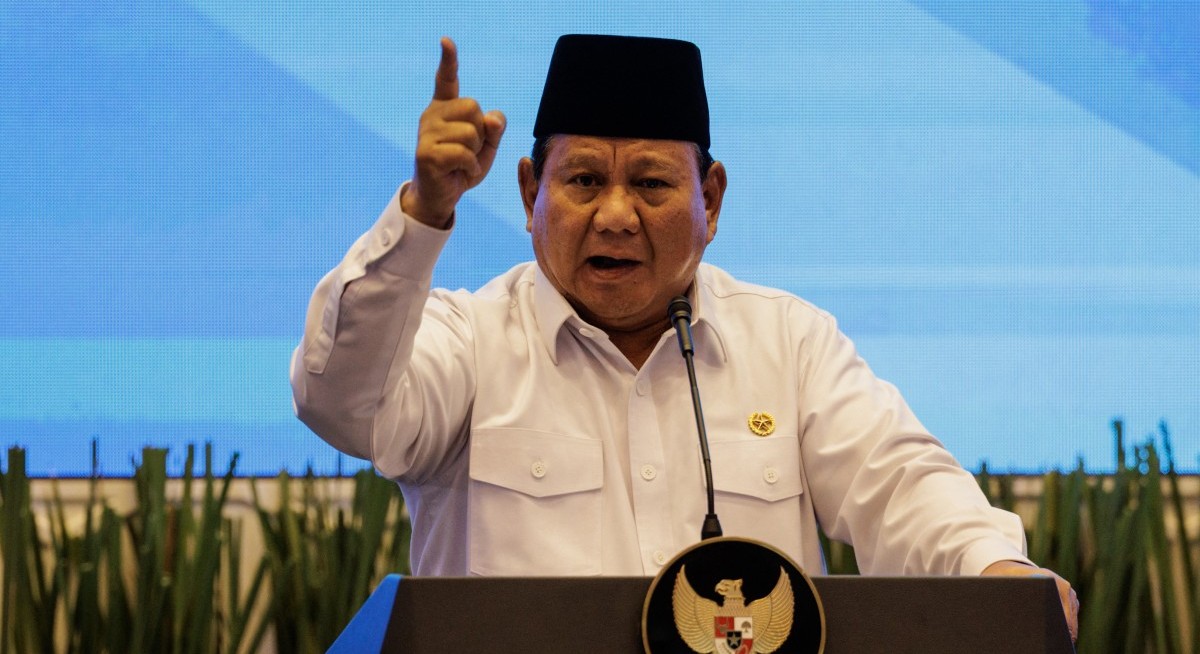The firm will now manage a total of 1.51 million hectares following a series of land takeovers earlier this year.
Separately, part of the world’s largest nickel site was seized on Thursday due to an alleged breach. Adriansyah confirmed that small portions of two mines, including the giant operation co-owned by Chinese metals giant Tsingshan Holding Group Co., were taken by the forestry task-force due to permit breaches.
Indonesia’s President Prabowo Subianto has pledged to crack down on abuses in the country’s sprawling natural resource sector as he attempts to fund an ambitious but costly policy programme.
The former general has targeted the sector aggressively, hiking royalties on mineral production and pursuing massive corruption probes against giants like Wilmar International and PT Pertamina.
See also: Thai leader Anutin strikes deal for coalition with Thaksin-backed party
He has also sought to bring more assets under closer state and presidential control, with the creation of multi-billion-dollar sovereign wealth fund Danantara, which has taken on a number of government enterprises.
At the same time, Prabowo’s months in office have been marked by an urgent need to shore up Indonesia’s reputation as an investment destination, even as expensive plans, aggressive moves on private assets and violent civil unrest work against him.
This week Prabowo reshuffled his cabinet in response to the protests — but widely respected Finance Minister Sri Mulyani Indrawati was among those removed from her post, heightening investor worries.
See also: Thai assets rally as election victory signals policy continuity
“The crackdown is likely to bring more order to the often chaotic mining and plantation sectors, addressing part of the industry’s historical baggage. A second objective is to boost government revenues, either by taking over some illegal activities or by exercising tighter regulatory control,” said Putra Adhiguna at the Energy Shift Institute in Jakarta.
However, the initiative requires greater transparency, Adhiguna said: “Without these, attempts to control illegal operations through understaffed institutions will ring hollow.”
Illegal and poorly regulated mining is a major problem in Southeast Asia’s largest economy, causing disproportionate environmental damage and depriving the government of tax revenue. Illicit mines may be causing 300 trillion rupiah ($23 billion) in losses to the state, Prabowo said in August, without specifying over what time period.
In his first state of the nation speech, Prabowo said the country had identified more than 1,000 illegal mines and up to 5 million hectares of illegal palm oil estates.
However, any further intensification of the measures could impact the supply of major export commodities like nickel, tin and agriculture products. The natural-resource sector is a key source of growth at a time when mass layoffs and global trade uncertainty have hurt other economic engines.




